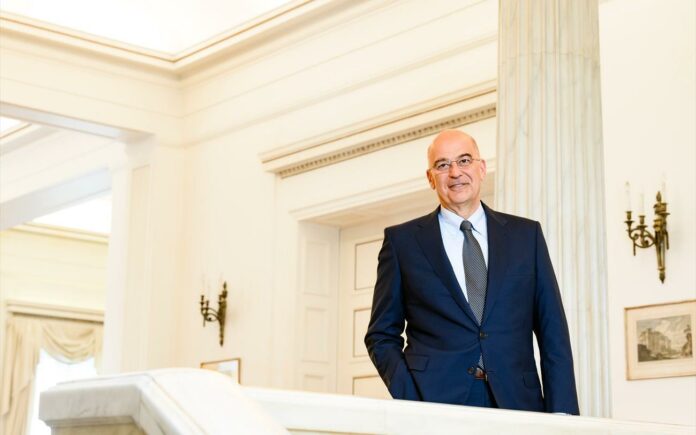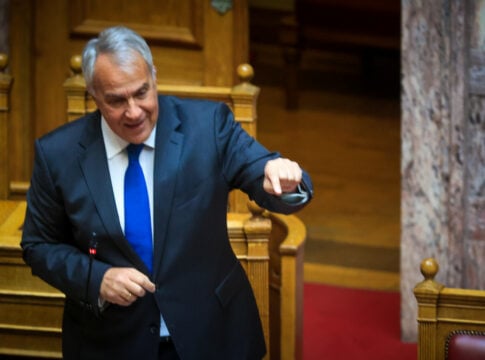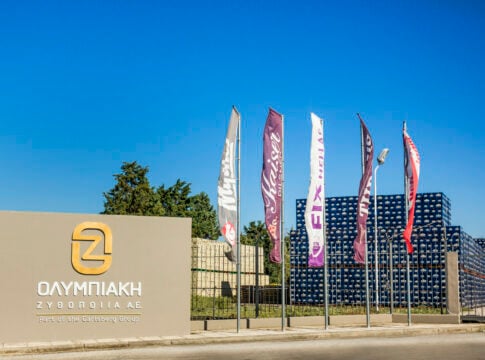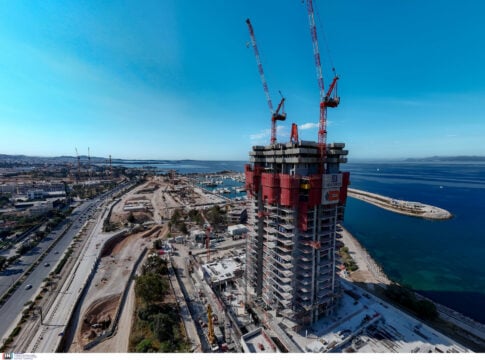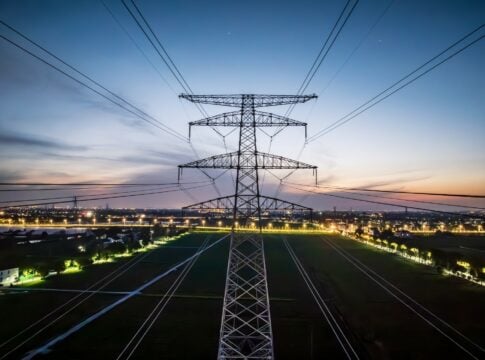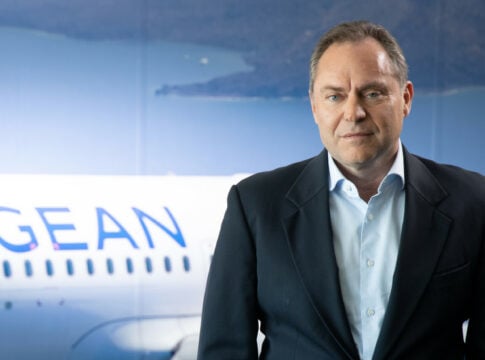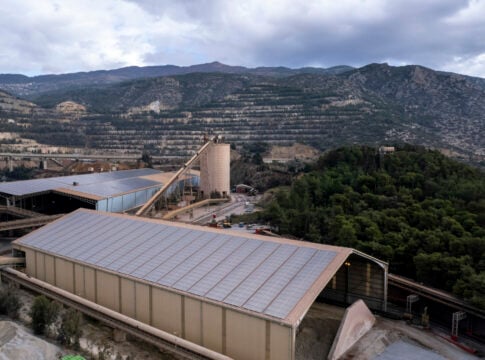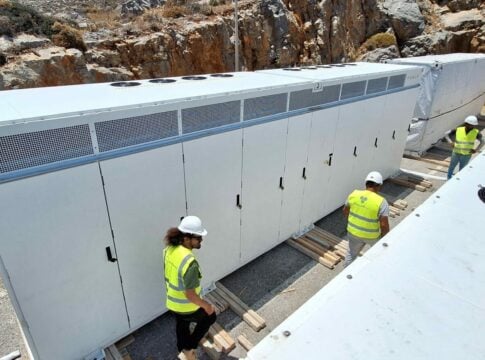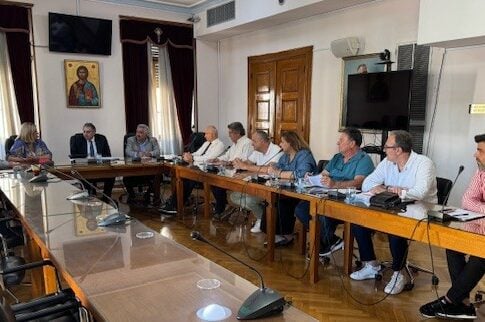Austria, a landlocked country, has signed the UN Convention on the Law of the Sea (UNCLOS), or Law of the Sea Treaty, because it “understands that unless we have rules, there is no other way,” Greek Foreign Affairs Minister Nikos Dendias said in Vienna on Tuesday.
In joint statements following a meeting with his Austrian counterpart Alexander Schallenberg, the visiting Greek minister expressed appreciation to Austria for always being helpful and “a positive voice in the European Council supporting, not us, not Greece, not Cyprus, but International Law.”
During their meeting the two ministers discussed development in Ukraine, the East Mediterranean and the Western Balkans. Regarding Ukraine, Dendias said, “We have a very clear position: everybody that is connected with the EU should abide by those sanctions. We cannot have various levels of involvement in this crisis. All the countries that accept International Law and the norms of International Law have to have a common position.” He also said that the Russian invasion of Ukraine created a unity among EU members “that was unbelievable just a few days ago,” while efforts continued for a humanitarian corridor to evacuate members of the Greek minority there, including the Greek consul general.
The Greek FM also epxressed appreciation for Austria’s help in the 2015 migration crisis at the border, noting that “Austria is not an à la carte friend, but a country that helps other European countries in their hour of need.”
Asked on his opinion on banning Russian gas and oil imports, the minister declined to take a stance, noting that the degree of dependence on Russia varied widely among EU countries. He said that instead he would prefer to “hear their opinion in the Council of Ministers before formulating a response.”
Greece relies on Russia for only 30% of its total energy needs, he said, but is working toward diversification. “We have two FSRU [Floating Storage and Regasification] Units, which can import liquefied gas from other sources, Algeria, Qatar, the United States. So, Europe may have a choice in the future – but I underline, in the future.”
FM Schallenberg
Austria’s FM Schallenberg condemned the Russian invasion of Ukraine and the violations of international law at the cost of civilians, and commenting on Ukraine’s wish to join the EU said, “emotionally I understand 100% the stance of our friends in Kiev. But we must be cautious in order not to create expectations we will not be able to meet later on.”
The Austrian minister said it may be “a dark time for Europe,” but the EU is applying geopolitcs much more than in recent years, and also shows a great unity, something he noted he had “rarely seen in my career,” particularly in terms of solidarity and compassion.
Asked if EU should follow the United States’ example and ban all energy imports from Russia, Schallenberg clarified that “we are not simply a neighboring region, but partly dependent on energy production. […] We must be realists.” He also said that such a development “would not change in the least the terrible military attacks of Russia and the destruction experienced by the Ukrainians.”
Schallenberg also warned that in the Western Balkans and even in Moldova, the EU needed to move faster so the region’s countries joined the EU the soonest possible. “Greece has taken a large step with the Prespes Agreement to make North Macedonia’s progress possible, and I am grateful to your government and that of Bulgaria,” for their help, as “we have delayed and must at last open accession negotiations with Albania and North Macedonia, and we must proceed with Bosnia-Herzegovina and conclude the issue of [abolishing] visas with Kosovo.”
The war in Ukraine shows that the EU must move ahead to bring into its fold the countries lying closer to it and those surrounded by EU member states, he added.
Source: ANA-MPA


